About Recovery Unplugged South Carolina
Latest Reviews
Rehab Score
Gallery
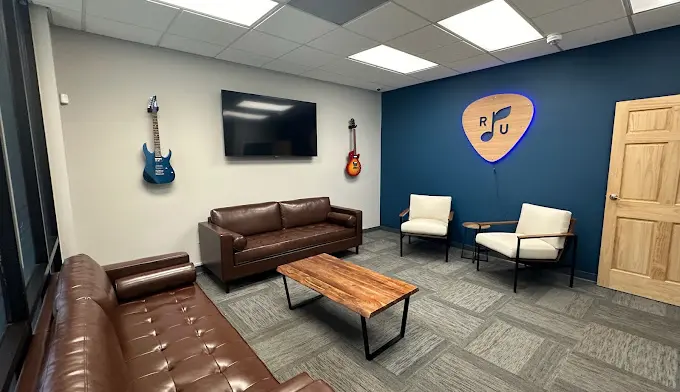
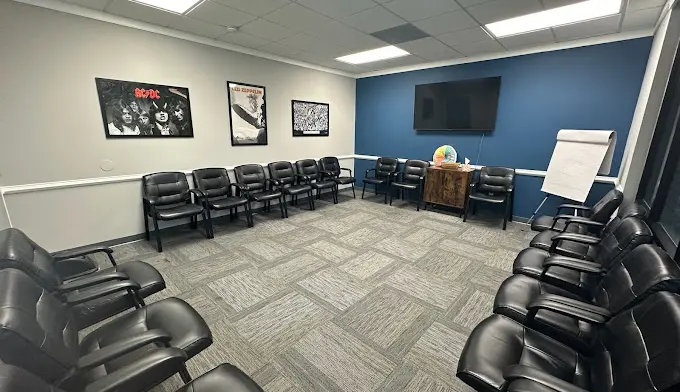
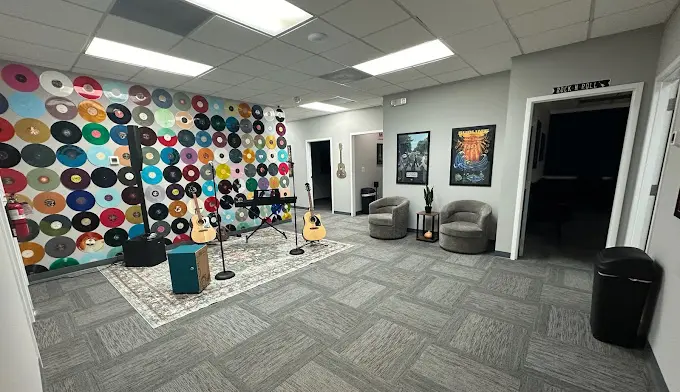

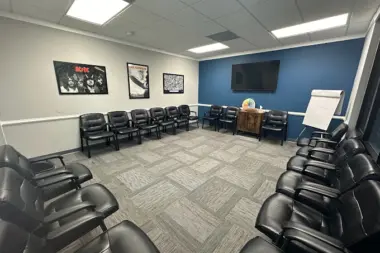
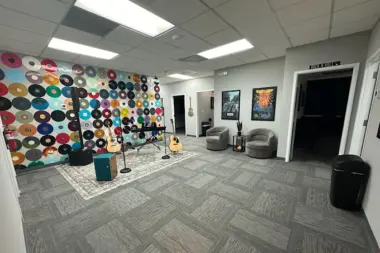
Other Forms of Payment
Private insurance refers to any kind of healthcare coverage that isn't from the state or federal government. This includes individual and family plans offered by an employer or purchased from the Insurance Marketplace. Every plan will have different requirements and out of pocket costs so be sure to get the full details before you start treatment.
Self-pay involves paying for treatment out of your own pocket. You can use savings or credit, get a personal loan, or receive help from family and friends to fund your treatment. If you don't have insurance or your insurance plan doesn't cover a specific program, self-pay can help ensure you still get the care you need.
Financial aid can take many forms. Centers may have grants or scholarships available to clients who meet eligibility requirements. Programs that receive SAMHSA grants may have financial aid available for those who need treatment as well. Grants and scholarships can help you pai for treatment without having to repay.
Medicare is a federal program that provides health insurance for those 65 and older. It also serves people under 65 with chronic and disabling health challenges. To use Medicare for addiction treatment you need to find a program that accepts Medicare and is in network with your plan. Out of pocket costs and preauthorization requirements vary, so always check with your provider.
Addiction Treatments
Levels of Care
Clients who have just completed detox, those who are in crisis, and those with a history of relapse often require treatment in an inpatient rehab. These facilities provide high-level supervision, structure, and support, allowing clients to focus on their recovery away from their addiction triggers. Most inpatient treatment programs center upon various forms of psychotherapy, including CBT, DBT, RBT, and motivational interviewing. Clients may also receive recovery-focused life skills training and evidence-based holistic therapies, such as massage.
Outpatient Programs (OP) are for those seeking mental rehab or drug rehab, but who also stay at home every night. The main difference between outpatient treatment (OP) and intensive outpatient treatment (IOP) lies in the amount of hours the patient spends at the facility. Most of the time an outpatient program is designed for someone who has completed an inpatient stay and is looking to continue their growth in recovery. Outpatient is not meant to be the starting point, it is commonly referred to as aftercare.
Clients undergoing treatment in an intensive outpatient program (IOP) remain in or return to their homes following detox and/or inpatient rehab. They engage in multiple, extended treatment sessions weekly, with most intensive outpatient rehabs requiring between nine and 20 therapeutic hours per week. These programs are ideal for clients in early recovery and those at an elevated risk of relapse and typically combine counseling, recovery education, holistic care, and medication assisted treatment (MAT).
Persons engaged in a 12 step program regularly attend group meetings in their communities, though online sessions are becoming increasingly popular. 12 step recovery is rooted in spiritual principles that enable participants to address the root causes of addiction and to foster self-awareness, compassion, acceptance, and accountability. Peer sponsors support participants as they work through the steps of recovery. Most programs are non-denominational, but specialized formats, including the faith-based Celebrate Recovery! format, are available.
A sober living home in South Carolina is a substance-free environment for individuals who are recovering from drug or alcohol abuse. Since these settings do not provide treatment services, they are not covered by insurance. However, your treatment provider may be able to offer financial support if you need assistance with rent payment. They may also refer you to a men's or women's sober living home that offers sliding scale fees.
If your friend or family member is living with a substance abuse issue, a drug intervention in South Carolina can help them accept the treatment they need. A drug intervention is a structured confrontation initiated by family and friends and facilitated by intervention services. The professional interventionist provides education about addiction, enabling, and available treatment options.
As a short-term option, a partial hospitalization program (PHP) provides an intensive rehab option for individuals with acute symptoms. PHP treatment focuses on management without requiring 24-hour care. During PHP treatment, you may engage in behavioral therapy services, psychoeducation, and periodic evaluations conducted by licensed professionals. The duration of a partial hospitalization program can average 90-130 days based on your progress. Insurance coverage may vary, but many providers offer full or partial coverage for PHP.
24-hour clinical care in South Carolina is designed to protect those in recovery from health risks of withdrawal. For example, opioid withdrawal can cause vomiting and diarrhea that results in a life-threatening level of dehydration. Withdrawal from benzodiazepines can cause seizures which can be fatal. To avoid these risks, supervised medical detox is recommended. Under this care, medical professionals constantly monitor patients to ensure a safe detox process.
Withdrawing from addictive substances, like alcohol, benzodiazepines (like Xanax), or opioids, occurs during the detox process. Since this process can have uncomfortable and even dangerous side effects, the mission of a medically assisted detox is to provide an expert medical team to help monitor your health around the clock. They will work to keep you as safe and comfortable as possible, administering necessary medications to alleviate any withdrawal symptoms.
Treatments
Substance rehabs focus on helping individuals recover from substance abuse, including alcohol and drug addiction (both illegal and prescription drugs). They often include the opportunity to engage in both individual as well as group therapy.
Programs
Adult rehab programs include therapies tailored to each client's specific needs, goals, and recovery progress. They are tailored to the specific challenges adult clients may face, including family and work pressures and commitments. From inpatient and residential treatment to various levels of outpatient services, there are many options available. Some facilities also help adults work through co-occurring conditions, like anxiety, that can accompany addiction.
Recovery is most successful when clients feel accepted and validated by their peers and treatment providers. Facilities that offer LGBTQ-inclusive programming are committed to creating a safe space where everyone can grow and recover without fear of judgment or discrimination. They will have dedicated policies in place to create a safe and supportive environment that fosters free expression.
Clinical Services
The main basis of cognitive behavioral therapy in South Carolina is that all your thoughts, feelings, and behaviors are interconnected. Therefore, the therapist will help you change your thoughts, which will lead to different emotions and actions.
If you struggle with managing your emotions, dialectical behavior therapy in South Carolina might be a good method of treatment for you. This form of talk therapy helps you learn to accept yourself while working on changing unhealthy patterns of thoughts and reactions.
Group therapy is any therapeutic work that happens in a group (not one-on-one). There are a number of different group therapy modalities, including support groups, experiential therapy, psycho-education, and more. Group therapy involves treatment as well as processing interaction between group members.
In individual therapy, a patient meets one-on-one with a trained psychologist or counselor. Therapy is a pivotal part of effective substance abuse treatment, as it often covers root causes of addiction, including challenges faced by the patient in their social, family, and work/school life.
There are four fundamental processes to motivational interviewing in South Carolina. Engaging involves careful listening to understand the client's perspective. Focusing involves reaching an agreement on the purpose of the treatment. Evoking is the process of exploring the client's ideas and motivations. Planning explores how the client can make changes.
The overall goal of trauma therapy is to address and reduce the lingering physical and emotional effects that trauma has had on your life. You work within a safe space with an experienced therapist to understand your responses and develop healthier coping mechanisms.
During couples therapy in South Carolina, a licensed therapist offers techniques for how both partners can resolve conflict and manage challenges in the relationship. The couple may also engage in individual or family therapy for further support.
The goal of all family therapy sessions is to support their loved one's recovery effectively by learning new and healthy communication skills as well as ways of managing stress and resolving conflicts. This helps improve interactions and addresses underlying issues within the family that often influence recovery.
Life skills allow you to manage the highs and lows of daily life. They include interpersonal skills, emotional skills, and cognitive skills. Life skills training in South Carolina helps you relearn or strengthen these skills so you can move forward successfully in recovery.
During active addiction, many individuals skip meals, consume a lot of sugars and processed foods, and don't get enough protein, fruits, or vegetables. An important part of recovery is nutrition therapy, which teaches you how to develop and maintain a healthier lifestyle.
Creative arts therapy is a multimodal approach. It combines music, movement, writing, and other creative forms of expression to facilitate personal growth. It is often used in conjunction with psychotherapeutic methods during drug rehab in South Carolina.
During experiential therapy, clients are given the opportunity to reexperience difficult situations from their past so they can explore emotions safely and cope with feelings of hurt, anger, or shame. This is done through a variety of techniques that provide expressive tools, such as art, music, role playing, crafts, and animal care.
Amenities
-
Residential Setting
-
Private Rooms
Staff & Accreditations
Staff

Amanda Johnson
Executive Director
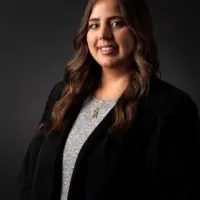
Ana Dominguez
Executive Director
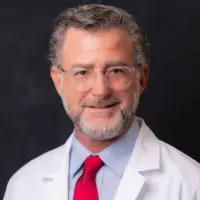
David Kramer
Medical Director
Accreditations

The Joint Commission, formerly known as JCAHO, is a nonprofit organization that accredits rehab organizations and programs. Founded in 1951, the Joint Commision's mission is to improve the quality of patient care and demonstrating the quality of patient care.
Joint Commission Accreditation: Yes
